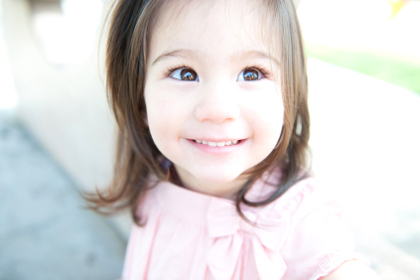 The Ethic of Reciprocity, or the Golden Rule, is widely referred to as one of the most universal of all principles. So what can the average preschooler understand -- and thus be taught -- about treating others as he would like to be treated?
The Ethic of Reciprocity, or the Golden Rule, is widely referred to as one of the most universal of all principles. So what can the average preschooler understand -- and thus be taught -- about treating others as he would like to be treated?
According to David Shapiro, a Ph.D. candidate in philosophy and a member of the philosophy faculty at Cascadia Community College, "There's a natural development that kids go through cognitively, that tracks along with what it means to do the right thing or be a good person."
Shapiro highlights Lawrence Kohlberg's theory of moral development, which, although not without its detractors, has still greatly influenced our understanding of how children develop a moral sense: "Little kids have a carrot-and-stick orientation," he says. "They'll learn right and wrong from punishment and praise. A 3-year-old knows you shouldn't punch Daddy when he's sleeping, but that's just because Daddy's going to yell at you if you do."
By the time a child is around 7, Shapiro continues, "he develops a sense of the rules one has to follow." Then finally, the highest stage of development is "an understanding of the principles behind the rule...you understand that we treat others as we like to be treated."
Social and emotional awareness for preschoolers
Since the preschooler's social and emotional awareness is on the rise, she gets to apply her "carrot-and-stick" morality to a whole host of new situations. "3-year-olds start to understand that there are people outside of themselves who have feelings like they do," says Susan Fox, a pediatric developmental therapist and occupational therapist.
"While the first few years of life are about learning what those feelings are and learning how to control them, over 3 is about 'I can create these feelings in other people, these feelings I have in myself.' And this can be used for good or evil."
Fox believes that the right preschool -- one focusing on social and emotional development -- can help a child learn to resolve conflicts and get along with others. Yet even so, most of what kids this age are learning about the Golden Rule continues to come from home.
Modeling good behavior for preschoolers
And according to Birgitta Dahl, parent educator at Seattle Central Community College, most of that learning comes from how the child's own parents behave. "Really, modeling is the most important thing," she says. "Not that we're perfect as adults, but that we just try to think in our everyday lives about the choices we make, because our children are watching us."
Fox agrees. "Parenting to teach values is about living those values," she says. "And it's a challenge. It means leaving your parent role for a moment and putting yourself in your child's position -- seeing the world the way do -- then helping them see it in a more multi-dimensional way."
It's not easy, for example, to admit when you're wrong, or to apologize if you've spoken impolitely to your child or when you're not necessarily being a good-manners role model. But these are things Fox makes a point to do with her own daughter, Katie. "She should know that it's okay to make a mistake, but that when you do, it's important to apologize. These are important skills for living. Katie will turn to me now if my voice is off and say, 'I don't like how you're talking to me.' Katie expects to be respected."
Don't sweat the small stuff
Nor is it easy to overlook a transgression in order to focus on the bigger picture. Suppose, for example, that your child admits to taking a cookie from the cookie jar after you had asked him not to. For Fox, it's important to reward the child's honesty. "I might sit down and with him and say 'I am so proud of you that you told me the truth. Next time when I ask you not to eat a cookie, do you think you might be able to do it?'"
And when your child hits someone on the playground? "Rather than judging the child," Fox says, "you can help him see things outside of himself by saying 'when you hit, that hurts, and it makes so-and-so sad.'"
Literature is another tool Dahl recommends for teaching ethical behavior. "Books are really wonderful for any kind of subject that you as a parent may need a little help vocalizing." Fairy tales, which often have a moral at the end of the story, are a genre that Dahl's three girls enjoyed when they were young.
"I know today they are somewhat controversial, but don't be afraid to use fairy tales, because you can always talk about the biases, like the little girls that don't get to do what the little boys did. Sometimes it's a little easier for kids to understand [a principle] if it's black and white."
Experience is also important for a child's budding awareness of the Golden Rule. Although it seems instinctual to want to protect our children from painful life situations, it's important, Fox says, not to deny them the opportunity to face their own challenges.
"You can't choose right," she says, "if you don't have the choice to choose wrong."
Laura Fine-Morrison is a Seattle-based freelance writer and mother.









